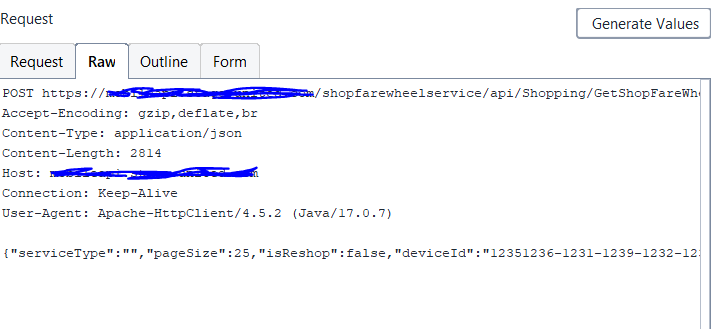Simple script to batch edit multiple groovy scripts
Question How to batch edit multiple groovy scripts? Here is my solution. Answer import com.eviware.soapui.impl.wsdl.teststeps.WsdlGroovyScriptTestStep def testSuite = 'testsuitename' String textToSearch = """text""" def replacementText = """text""" def tSuite = context.testCase.testSuite.project.testSuites[testSuite] def testcases = tSuite.testCaseList.toArray() testcases.each() {Case -> for( testSteps in Case.testStepList ) { if( testSteps instanceof WsdlGroovyScriptTestStep && testSteps.getScript().contains(textToSearch)) { log.info(Case.getName().toString() + " - " + testSteps.getScript().toString()) String newString = testSteps.getScript().toString().replace(textToSearch, replacementText) testSteps.setScript(newString) } } }630Views3likes0CommentsTestEngine external JAR files - error - unable to resolve class
Background - We have test engine hosted on some linux server and we execute tests suing CURL cmd or POSTMAN. Given some external JARs When we add external JARs in /bin/ext folder of test engine server and re-start the test engine And run the tests using curl command from locally or using POSTMAN Then it throws error for groovy script test step saying unable to resolve class <className present in external JARs> on import statement itself. We have also configured .vmoptions of test engine server to read ext JARs but still it throws error. Locally, In ReadyAPI, we are placing those JARs in /bin/ext/ folder and it works perfectly fine. Any solution to this problem?285Views1like2Commentsgcloud authentification with service account
Hi community, we are trying to check our google storage buckets using ready api. For this we need a token to access the gcs. It works on my local machine inserting my personal token directly in the oauth token field but, as you might understand, I don't want this to be stored in any gitlab pipeline or log file. Has any body already gathered experience with connection rap to the google storage, and has come across a solution for automatic token generation?239Views1like0CommentsIs it possible to integrate the Azure TestPlan Test cases and the ReadyAPI tests ?
I have created manual test cases in Azure devops Test Plan. I have automated the manual test case functionality using ReadyAPI. Now i want to link the Azure Test Plan test cases while running the ReadyAPI tests via the Azure pieplines. Is it possible to do so ? I am using the Azure devops extension named "ReadyAPI Test for Azure Devops" and "Publish Test Results" in my pipeline.239Views1like1CommentUsing smart card / CAC certificate with ReadyAPI
As of this morning, I am trying to figure out if its possible to use a CAC/Smart card certificate device with ReadyAPI. The intent would be to sign via WSS-Configuration any outgoing SOAP requests. Current work flow is we utilize a .p12 file for a test user, and set that up in WSS-Config with all of the necessary parts and set it to the endpoints we are testing. I am not sure how to achieve that same level of testing with a Smart Card. Any/all insight would be much appreciated!Solved465Views1like3CommentsHow are you securing secrets for storing your projects in github?
We're trying to migrate our ReadyAPI suites into github and I'm getting a little stuck with ReadyAPI's documentation on how to encrypt passwords we use to test our application, I'm hoping someone has a simple answer they can share. Our application passwords are stored in auth manager or request properties, when this project is converted to a composite project and pushed into github those values are visible so I have followed documentation to try and mask them without success. 1. Encrypt the project - this stops the project being a composite project so we're back to single use for upgrades and preventing people from making changes and keeping them in a branch. Doesn't seem like this fits. 2. Password protect the project - doesn't obsfucate the passwords anywhere. 3. Move the passwords to encrypted properties - Feels very hacky and clunky, makes the auth manager redundant and isn't very user friedly. I haven't been able to find any other in application solutions other than the above, I was looking at keystores/ truststores but neither seem to fit the requirement. This has left us with the only option we can see which is to write a groovyscript to pull the passwords out of an encrypted keepass kdbx file to use at runtime. This is not my preferred approach as I would rather use in built features with ReadyAPI support documentation... If anyone knows of other things to attempt or can share how they managed it in their project that would be appreciated.Solved875Views1like4Comments


